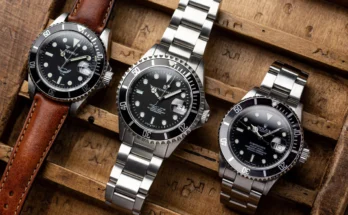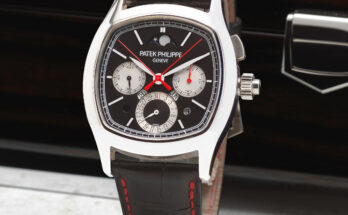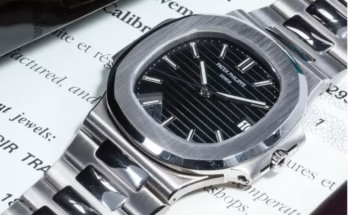Introduction: Beyond the Basic Buy-Sell Transaction

While most watch content focuses simply on whether to buy or sell a particular timepiece, the real magic happens in the negotiation process. Whether you’re looking to add a grail watch to your collection or offload a piece that no longer gets wrist time, understanding the nuances of negotiation can save you thousands or even help you secure otherwise unobtainable watches.
Know Your Position: Preparation is Everything
Before entering any negotiation, you need to understand your position thoroughly:
For buyers:
- Research the current market value (not just retail price)
- Know the watch’s production status (discontinued? limited edition?)
- Understand recent price trends (is it appreciating or depreciating?)
- Consider the condition’s impact on value (original box and papers? service history?)
For sellers:
- Determine your bottom-line acceptable price
- Understand what makes your particular example special
- Gather documentation to validate authenticity and condition
- Know your competition in the current market
Remember: The person with more information has the advantage. Spend hours, not minutes, researching before any significant transaction.
Reading the Room: Understanding Different Seller Types
Not all watch sellers are the same, and recognizing who you’re dealing with can transform your approach:
Authorized Dealers (ADs):
- Often have limited discount flexibility on current models
- May have more room to negotiate on slower-moving inventory
- Value long-term relationships over single transactions
- Can sometimes include “extras” even when price is firm
Grey Market Dealers:
- Typically have preset margins they need to maintain
- Often more flexible on pre-owned than new pieces
- Usually more open to creative deals (trades + cash)
- May value quick turnover over maximum profit on each piece
Private Sellers:
- Motivations vary widely (quick sale, upgrading, financial need)
- Often less knowledgeable about exact market value
- May place sentimental value above market value
- Frequently more concerned about buyer trustworthiness than dealers
The Psychology of Watch Negotiations
Understanding human psychology is as important as knowing watch values:
The Power of Silence: Saying nothing after a price is quoted creates discomfort that often leads to a better offer. When someone names their price, try replying with “I see” followed by silence.
The Anchoring Effect: The first number mentioned sets the psychological range. If you’re selling, start higher than your target. If buying, start lower (but remain realistic to be taken seriously).
The Walk-Away Power: Your willingness to walk away is your strongest negotiation tool. Never appear emotionally attached to closing a deal.
Building Rapport: Finding common ground as watch enthusiasts can sometimes lead to better deals than aggressive negotiation tactics. Share your passion and collection stories.
Creative Negotiation Strategies
Sometimes the best deals come from thinking beyond simple price reduction:
The Package Deal: Negotiate on multiple items at once. “What if I take both the Speedmaster and the strap kit?”
The Trade-Plus-Cash Approach: Offering a trade plus cash can often unlock deals that a straight purchase cannot.
The Time-Based Discount: “If I can complete payment today…” or “If you can hold it until next month…” can create win-win scenarios.
The Service Value-Add: “Since it’s due for service soon, would you consider…” can be effective for watches nearing service intervals.
Digital vs. In-Person Negotiation Differences
The medium matters:
In-Person Advantages:
- You can read body language and facial cues
- The watch can be inspected thoroughly
- Deals can conclude immediately
- Building rapport is easier
Digital Negotiation Tactics:
- Take time to craft responses carefully
- Use images and video to show condition clearly
- Establish trust through references or ratings
- Be clear and concise in communication
Ethical Considerations in Watch Dealing
Successful negotiators build reputations that lead to future opportunities:
- Never misrepresent a watch’s condition or history
- Honor agreements once made
- Keep confidential information private
- Recognize fair value goes both ways
- Leave some value on the table for long-term relationships
Common Mistakes to Avoid
For Buyers:
- Revealing your maximum budget too early
- Showing excessive enthusiasm for a specific piece
- Failing to inspect thoroughly before agreeing to a price
- Rushing decisions due to FOMO
For Sellers:
- Not establishing minimum acceptable price beforehand
- Over-disclosing financial or time pressures
- Taking lowball offers personally
- Ignoring serious buyers while waiting for perfect offers
Closing Thoughts: The Long Game
The watch community is surprisingly small, and your reputation will follow you. The best negotiators aren’t those who “win” every transaction by extracting maximum value, but those who create fair deals where both parties walk away satisfied.
Remember: Your negotiation goal shouldn’t be to get the absolute lowest price or highest profit on a single transaction. It should be to build relationships that give you access to desirable pieces in the future and create a network of trusted watch contacts.
A successful watch deal isn’t just about the money saved or made—it’s about adding another chapter to your horological journey while ensuring others are happy to deal with you again.
What are your best tips for negotiating watch deals? Share your experiences in the comments below!


